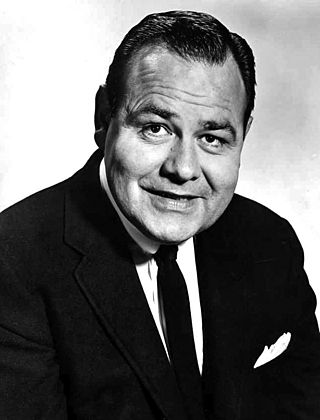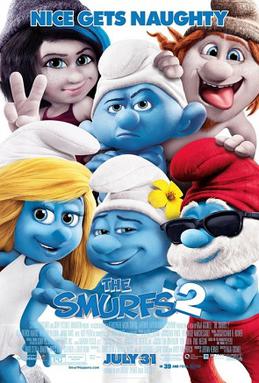Jonathan Harshman Winters was an American comedian, actor, author, television host, and artist. He started performing as a stand up comedian before transitioning his career to acting in film and television. Winters received numerous accolades including two Grammy Awards, a Primetime Emmy Award, as well as a star on the Hollywood Walk of Fame in 1960, the American Academy of Achievement in 1973, and the Mark Twain Prize for American Humor in 1999.
Winters was born in Dayton, Ohio, to Alice Kilgore Rodgers and Jonathan Harshman Winters II, an insurance agent who later became an investment broker. He was a descendant of Valentine Winters, founder of the Winters National Bank in Dayton, Ohio. Of English and Scottish-Irish ancestry, Winters had described his father as an alcoholic who had trouble holding a job. His grandfather, a frustrated comedian, owned the Winters National Bank, which failed as the family's fortunes collapsed during the Great Depression.
When he was seven, his parents separated. Winters' mother took him to Springfield, Ohio, to live with his maternal grandmother. "Mother and dad didn't understand me; I didn't understand them," Winters told Jim Lehrer on The News Hour with Jim Lehrer in 1999. "So consequently it was a strange kind of arrangement." Alone in his room, he created characters and interviewed himself. A poor student, Winters continued talking to himself and developed a repertoire of strange sound effects. He often entertained his high school friends by imitating a race at the Indianapolis Motor Speedway.
In another television interview, Winters described how deeply he was hurt by his parents' divorce. He fought youthful tormentors who ridiculed him for not having a father in his life. When the tormentors were not around, he would go to a building or tree and weep in despair. Winters said that he learned to laugh at his situation but admitted that his adult life had been a response to sorrow.
During his senior year at Springfield High School, Winters quit school, joined the U.S. Marine Corps at the age of seventeen and served 2+1⁄2 years in the Pacific Theater during World War II. Upon his return, he attended Kenyon College. He later studied cartooning at Dayton Art Institute, where he met Eileen Schauder, whom he married on September 11, 1948. He was a brother of the Delta Kappa Epsilon fraternity (Lambda chapter).
Winters's career started from a lost wristwatch about six or seven months after his marriage to Eileen in 1948. The newlyweds couldn't afford to buy another one; then Eileen read about a talent contest in which the first prize was a wristwatch and encouraged Jonathan to "go down and win it." She was certain he could, and he did. His performance led to a disc jockey job, where he was supposed to introduce songs and announce the temperature. Gradually his ad libs, personae, and antics took over the show. He began acting along with developing comedy routines while studying at Kenyon College in Gambier, Ohio. He was also a local radio personality on WING (mornings, 6 to 8) in Dayton, Ohio, and at WIZE in Springfield, Ohio. He performed as "Johnny Winters" on WBNS-TV in Columbus, Ohio, for 2+1⁄2 years. Jerome R. "Ted" Reeves, then program director for WBNS-TV, arranged for his first audition with CBS in New York City.
After promising his wife that he would return to Dayton if he did not make it in a year, and with $56.46 in his pocket, he moved to New York City, staying with friends in Greenwich Village. After obtaining Martin Goodman as his agent, he began stand-up routines in various New York nightclubs. His earliest network television appearance was in 1954 on Chance of a Lifetime, hosted by Dennis James on the DuMont Television Network, where Winters again appeared as "Johnny Winters".
Winters made television history in 1956 when RCA broadcast the first public demonstration of color videotape on The Jonathan Winters Show. Author David Hajdu wrote in The New York Times (2006), "He soon used video technology 'to appear as two characters,' bantering back and forth, seemingly in the studio at the same time. You could say he invented the video stunt."
His big break occurred (with the revised name of Jonathan) when he worked for Alistair Cooke on the CBS Television Sunday morning show Omnibus. In 1957 he performed in the first color television show, a 15-minute routine sponsored by Tums.
From 1959 to 1964, his voice was heard in a series of popular television commercials for Utica Club beer. In the ads, he provided the voices of talking beer steins named Shultz and Dooley. Later, he became a spokesman for Hefty brand trash bags, for whom he appeared as a dapper garbageman known for collecting "gahr-bahj," as well as "Maude Frickert" and other characters.
Winters recorded many classic comedy albums for the Verve Records label, starting in 1960. Probably the best known of his characters from this period is "Maude Frickert", the seemingly sweet old lady with the barbed tongue (reportedly named for comedic actress Maudie Prickett). He was a favorite of Jack Paar, who hosted The Tonight Show from 1957 to 1962, and appeared frequently on his television programs, even going so far as to impersonate then U.S. president John F. Kennedy over the telephone as a prank on Paar.
Winters had a dramatic role in The Twilight Zone episode "A Game of Pool" (episode 3.5 aired on October 13, 1961). He also recorded Ogden Nash's The Carnival of the Animals poems to Camille Saint-Saëns's classical opus.
On The Tonight Show Starring Johnny Carson (1962–92), Winters usually performed in the guise of some character. Carson often did not know what Winters had planned and usually had to tease out the character's backstory during a comedic interview. Carson invented a character called "Aunt Blabby", who was similar to and possibly inspired by "Maude Frickert".
Winters appeared in more than 50 movies and many television shows, including particularly notable roles in the film It's a Mad, Mad, Mad, Mad World and in the dual roles of Henry Glenworthy and his dark, scheming brother, the Rev. Wilbur Glenworthy, in the film adaptation of Evelyn Waugh's novel The Loved One. Fellow comedians who starred with him in Mad World, such as Arnold Stang, said that in the long periods while they waited between scenes, Winters entertained them for hours in their trailer by becoming any character that they suggested to him.
From December 1967 to June 1969, Winters helmed his own hour-long weekly variety program on CBS (similar to the then-popular Red Skelton and Carol Burnett shows on the same network). The Jonathan Winters Show featured guest stars of comedy and music (e.g. The Doors), recurring sketches (often featuring Winters characters such as Maude Frickert, rural Elwood P. Suggins, drunk Harold Nermlinger, Norwegian Yorny Bjorny); and an audience-request section where Winters did impressions of persons, animals, etc. in various situations, e.g., John Wayne on the Moon. Choice bits from the latter were collected and released on a 1969 Columbia LP, "Stuff 'n' Nonsense". He later participated in ABC's The American Sportsman, hosted by Grits Gresham, who took celebrities on hunting, fishing, and shooting trips to exotic places around the world.
Winters made memorable appearances on both The Dean Martin Show and The Dean Martin Celebrity Roast, as well as being a regular on The Andy Williams Show. He also performed regularly as a panelist on The Hollywood Squares. In the mid-1970s, he appeared on ABC's Good Morning America doing humorous reviews of films.
During the late 1960s, Winters acted in several film comedies, most prominently The Russians Are Coming, the Russians Are Coming (1966), and Viva Max! (1969). Additionally, he was a regular (along with Woody Allen and Jo Anne Worley) on a Saturday morning children's television program Hot Dog in the early 1970s. He also had his own syndicated show called The Wacky World of Jonathan Winters from 1972 to 1974, the music director of which, Van Alexander, was nominated for a 1973 Primetime Emmy Award for Outstanding Achievement in Music Direction of a Variety, Musical or Dramatic Program. Jonathan Winters was a guest star on The Muppet Show in 1980. That same year, he also appeared in I Go Pogo (a.k.a. Pogo for President). In 1981, he was a guest on the short-lived comedy series Aloha Paradise.
In the fourth and final season of the sci-fi-styled TV comedy Mork & Mindy, Winters (one of Robin Williams's idols) was brought in as Mork & Mindy's child, Mearth. Due to the different Orkan physiology, Mork laid an egg, which grew and hatched into the much older Winters. It had been previously explained that Orkans aged "backwards," thus explaining Mearth's appearance and that of his teacher, Miss Geezba (portrayed by a then-11-year-old actress Louanne Sirota). Mork's infant son Mearth in Mork & Mindy was created in hopes of improving ratings and as an attempt to capitalize on Williams's comedic talents. Winters had previously guest-starred in Season 3, Episode 18, as Dave McConnell, Mindy's uncle. However, after multiple scheduling and cast changes, Mork & Mindy's fourth season was already quite low in the ratings and ended up being the show's last season.
Winters became a regular on Hee Haw during the 1983–1984 season. He was later the voice of Grandpa Smurf from 1986 to 1990 on the television series The Smurfs. Additionally, he did the voice of Bigelow in the 1985 TV film Pound Puppies and voice-acted on Yogi's Treasure Hunt in 1985, among other voice roles throughout the 1980s and 1990s.
In 1987, Winters was featured in NFL Films' The NFL TV Follies. That same year he published Winters' Tales: Stories and Observations for the Unusual. In 1991 and 1992, he had a supporting role on Davis Rules, a sitcom that lasted two seasons (25 episodes), for which he won a Primetime Emmy Award for Outstanding Supporting Actor in a Comedy Series. He played Gunny Davis, an eccentric grandfather helping raise his grandchildren after his son lost his wife.
In addition to his live-action roles, he was a guest star on The New Scooby-Doo Movies (in an episode where he also voiced an animated version of his "Maude Frickert" character) and as the narrator in Frosty Returns which airs annually aired during the Christmas season. Winters also provided the voice for the thief in The Thief and the Cobbler.
In 1994, Winters appeared as a fired factory worker (credited as "Grizzled Man") in The Flintstones. In an interesting role reversal, he was the serious-minded secular police chief and uncle of the character Lamont Cranston (played by Alec Baldwin) in The Shadow. That same year he voiced Stinkbomb D. Basset in the episode "Smell Ya Later" on Animaniacs.
Winters received eleven Grammy nominations during his career, including eight for the Grammy Award for Best Comedy Album; he won the Grammy Award for Best Spoken Comedy Album for Crank(y) Calls in 1996.
In 1996, Winters played himself in Bloopy's Buddies, a children's TV series on PBS designed to teach children about health and nutrition and to encourage them to exercise.
In 1999, he was awarded the Kennedy Center's Mark Twain Prize for American Humor, becoming the second recipient.
| Date of Birth | 11th November 1925 |
|---|---|
| Date of Death | 11th April 2013 |
| Age at Death | 87 Years |
| Zodiac Sign | Scorpio |
| Country | United States of America |
| Current City | Dayton |
| Birth Place | Dayton |
| Nationality | United States of America |
| Citizenship | United States of America |
| Spouses | Eileen Schauder |
|---|
| Education |
|---|
| Kenyon College |
| Occupation | actor, television actor, film actor, voice actor, screenwriter, writer, painter, film editor, comedian |
|---|
| Awards |
|---|
|








